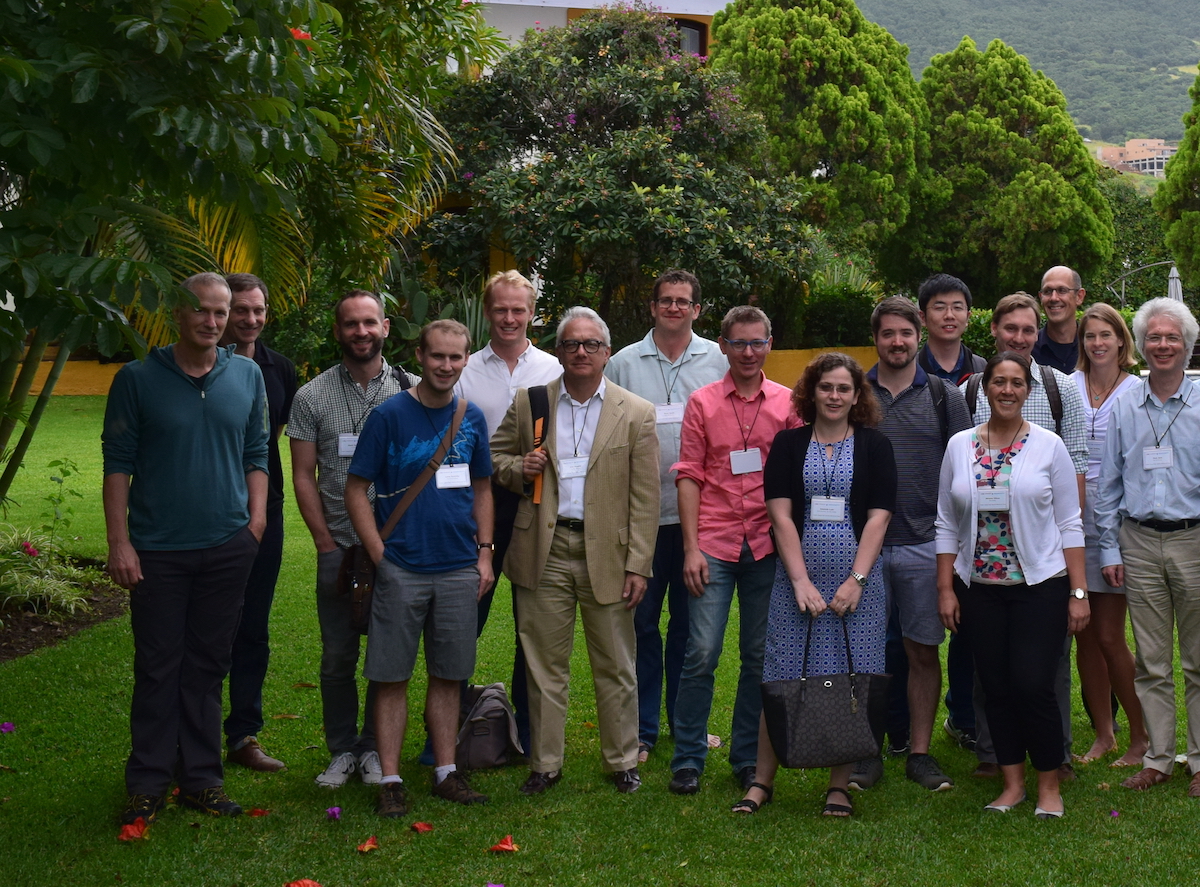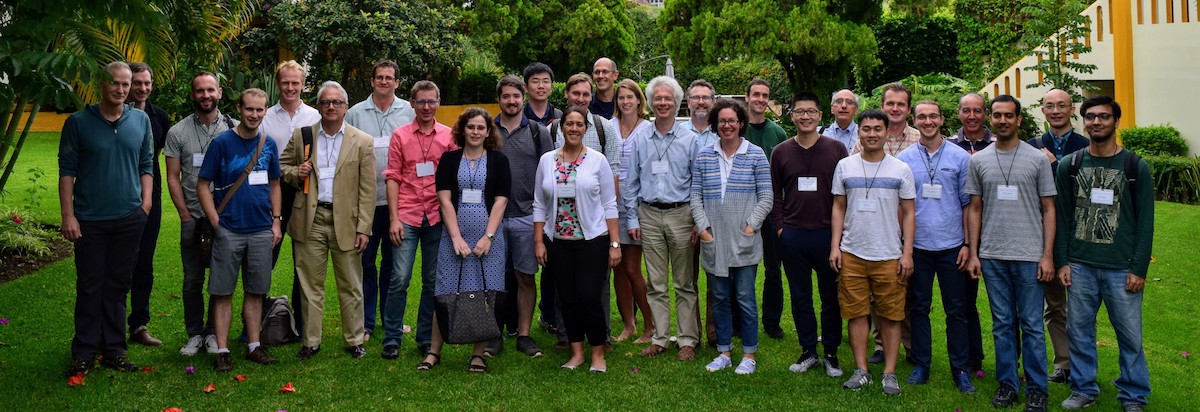Simulating complex fluids such as colloidal suspensions or blood flows is particularly challenging, as they possess some kind of elastic microstructure, characterized by a microscopic length scale as well as other physiognomies: fluid-structure interactions, large deformations, strong nonlinearities, non-local interactions, evolving interfaces and multiple length and time scales with, typically, no clear scale separation. Scientific Computing assistant professor Bryan Quaife, along with George Biros from the University of Texas organized a workshop to bring together experts from various areas and initiate advances in the simulation capabilities and our ultimate understanding of complex fluids.
Recent advances to be discussed at the workshop include flows in complex geometries, fast algorithms and parallel architectures for complex fluids, upscaling and coarse-grained variables, improved surface representations and discretizations, and new and expanding areas of application.
Quaife and graduate student Lukas Bystricky will attend and present at the workshop to be held October 1 – 6, 2017 in Oaxaca, Mexico. The workshop is being held in conjunction with the Banff International Research Station for Mathematical Innovation and Discovery.
For more, go to BIRS.




